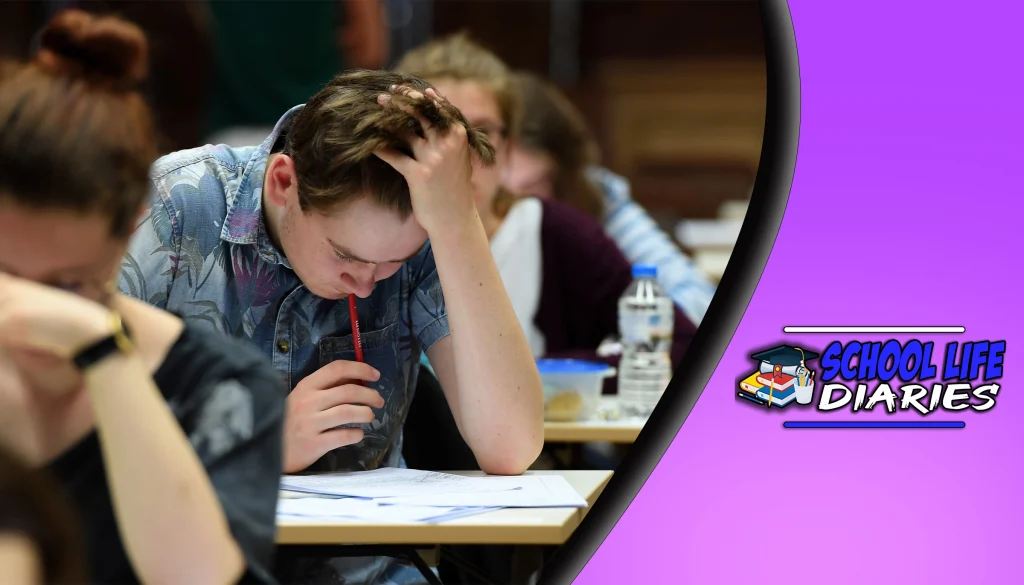The essay explores the topic of the good qualities of a student, focusing on the objective and impersonal aspects. It aims to provide an academic perspective on the characteristics that make a student exemplary and highlight their importance in education.
The article will examine various qualities such as discipline, dedication, curiosity, and perseverance that contribute to shaping an ideal student. Additionally, it will delve into the responsibilities of an ideal student and discuss how teachers and parents play a crucial role in nurturing these qualities. Furthermore, techniques for becoming an ideal student will be explored to guide readers toward achieving their academic goals.
This essay delves into exploring these qualities from an objective standpoint without any personal biases or pronouns. By shedding light on what makes a student exceptional, it aims to inspire readers with a subconscious desire for freedom to strive towards becoming better individuals academically and personally. Understanding the significance of these traits is essential for educators, parents, and students themselves as they collectively shape our future generation.
Key Points To Remember When Writing Essay On An Ideal Student For Lower Primary Classes
When writing an essay on an ideal student for lower primary classes, it is important to keep in mind the following key points. Firstly, a good student should possess certain qualities that set them apart from others. These qualities include being attentive, disciplined, and respectful toward teachers and classmates. An ideal student also demonstrates excellent behavior both inside and outside the classroom.
Secondly, an ideal student exhibits certain characteristics that make them stand out. They are curious and eager to learn new things. They actively participate in class discussions and ask relevant questions to enhance their understanding of the subject matter. They are punctual and always complete their homework assignments on time. Values play a crucial role in shaping an ideal student’s personality. They uphold moral values such as honesty, integrity, and compassion toward others.
They treat everyone with kindness and show empathy towards their peers. An ideal student understands the importance of teamwork and cooperation. Habits contribute significantly to defining an ideal student’s success. A good study routine is essential for effective learning outcomes. The ability to manage time efficiently enables them to balance academics with extracurricular activities without compromising either aspect of their education. Regular exercise habits promote physical fitness and overall well-being.
Writing an essay on an ideal student for lower primary classes requires highlighting qualities such as attentiveness, discipline, respectfulness towards teachers and classmates; characteristics like curiosity, active participation in class discussions; emphasis on moral values such as honesty, integrity, compassion; development of good habits like efficient time management and regular exercise routines would result in shaping a well-rounded individual who not only excels academically but also displays admirable behavior throughout their academic journey at lower primary level, which will lay a strong foundation for their future success and personal growth.
What Is An Ideal Student?
An ideal student possesses a combination of qualities that contribute to their academic success and overall growth. They serve as role models for their peers, demonstrating the importance of dedication and hard work in achieving goals.
Academic excellence is a top priority for ideal students, as they strive to consistently perform well in their studies and excel in all subjects. In addition to academic prowess, an ideal student also exhibits leadership qualities, taking initiative and inspiring others to do their best.
Active participation is another key characteristic of an ideal student. They are actively involved in classroom discussions, group projects, and extracurricular activities, showcasing their enthusiasm for learning and willingness to collaborate with others. Their eagerness to engage with different ideas and perspectives contributes not only to their own growth but also enhances the educational experience of those around them. Furthermore, an ideal student maintains a positive attitude towards learning and life in general.
They approach challenges with resilience and optimism, viewing setbacks as opportunities for personal growth rather than obstacles. This positive outlook not only helps them overcome difficulties but also influences their peers by fostering a supportive environment where everyone can thrive. An ideal student serves as a role model through their commitment to academic excellence, leadership qualities, active participation, and positive attitude.
These qualities not only contribute to their own success but also inspire others around them. By embodying these characteristics, an ideal student creates an environment conducive to learning and personal development for themselves as well as their peers.
1 Line Essay On An Ideal Student For Kids
Exemplifying the epitome of academic excellence and leadership, an ideal student embodies qualities that inspire and motivate those around them.
A role model in both their studies and extracurricular activities, an ideal student consistently achieves high standards of academic performance. They demonstrate a positive attitude towards learning, approaching each task with enthusiasm and determination to succeed.
This student not only excels individually but also thrives in a collaborative environment, showcasing exceptional teamwork skills. Furthermore, an ideal student possesses self-discipline, which is crucial in maintaining focus and achieving goals.
They exhibit strong time management skills, prioritizing their responsibilities effectively and avoiding procrastination. By adhering to deadlines and managing their workload efficiently, they set a remarkable example for their peers.
An ideal student serves as a role model for academic excellence, displaying a positive attitude toward learning while embodying the values of teamwork and self-discipline. Their commitment to personal growth sets them apart from their peers as they approach challenges with resilience and optimism. By exemplifying these qualities, an ideal student inspires those around them to strive for greatness in all aspects of life.
Short Essay On An Ideal Student In 150 Words For Children
A model student epitomizes academic excellence and leadership, demonstrating qualities that inspire and motivate others.
One of the most important qualities of a role model student is the recognition of the importance of education. They understand that education is not just about achieving good grades, but also about gaining knowledge and skills that will help them succeed in life. Model student takes their studies seriously, actively participates in class discussions, asks questions, and seeks to deepen their understanding of various subjects.
In addition to valuing education, an ideal student also knows the significance of developing good study habits. They recognize that consistent effort and dedication are necessary for effective learning. They set aside dedicated time for studying, create a conducive environment free from distractions, and utilize various techniques such as making summaries or flashcards to reinforce their learning. By cultivating these habits early on, they lay a solid foundation for future success academically.
Being disciplined is another crucial quality possessed by an ideal student. They understand that discipline plays a vital role in achieving goals and maintaining focus amidst challenges or distractions. They follow deadlines diligently, submit assignments on time, and prioritize their responsibilities effectively. This discipline not only helps them excel academically but also prepares them for the demands of professional life where adherence to schedules and commitments is essential.
A model student embodies qualities such as valuing education, developing good study habits, being disciplined, and embracing positive peer influence. These attributes contribute not only to their own academic success but also inspire those around them to strive for excellence. Through their actions and achievements, they serve as role models for other students, motivating them to reach their full potential in both academics and personal growth.
Long Essay On An Ideal Student For Kids
The qualities of an ideal student can greatly contribute to their success in academics and personal growth. Hard work is a key characteristic that enables students to achieve their goals and excel in their studies. Discipline ensures that students stay focused, manage their time effectively, and avoid distractions that may hinder their progress.
Punctuality reflects a sense of responsibility and respect for others’ time, allowing students to make the most out of their learning opportunities.
Good manners foster positive relationships with peers and teachers, creating a harmonious learning environment. Finally, obedience demonstrates the ability to follow rules and instructions, which is essential for maintaining order in the classroom and preparing students for future professional environments.
Hard work
Demonstrating diligence and perseverance, a student’s hard work is a key attribute that contributes to their academic success.
Perseverance and determination are essential qualities for a student to possess in order to overcome challenges and achieve their goals. In the pursuit of knowledge, students often encounter difficulties and setbacks. Additionally, goal setting is another important aspect of a student’s hard work. By setting clear objectives for themselves, students have something to strive towards, providing them with motivation and direction. Goals give students a sense of purpose and help them stay focused on what needs to be accomplished.
Furthermore, self-discipline is imperative for maintaining consistency in one’s efforts. It requires students to resist distractions, manage procrastination tendencies, and maintain focus even when faced with competing priorities. Developing self-discipline enables students to stay committed to their studies even when they may not feel motivated or when challenges arise.
Lastly, hard work often entails sacrifice and commitment. Students must be willing to dedicate significant time and effort towards their studies while making sacrifices such as giving up leisure activities or social engagements in order to meet academic responsibilities.
An ideal student possesses the quality of hard work which encompasses perseverance, determination, time management skills, goal-setting abilities, self-discipline as well as sacrifice and commitment.
Discipline
Discipline is a vital trait for students aiming to achieve academic success, as it allows them to stay focused and committed to their studies. Self-control development is an important aspect of discipline, as it helps students resist distractions and temptations that may hinder their progress.
Moreover, discipline emphasizes the importance of rules in academic settings. Following rules not only demonstrates respect for authority but also creates a conducive environment for learning.
This understanding fosters a sense of responsibility and accountability among students, encouraging them to adhere to deadlines, participate actively in class discussions, and engage in constructive behavior. The benefits of discipline extend beyond academic achievements.
It also plays a significant role in maintaining focus throughout the educational journey. With numerous distractions vying for attention – such as social media or personal obligations – disciplined students are better equipped to stay on track with their studies.
Furthermore, discipline contributes to building character by instilling values such as perseverance and dedication. Students who practice discipline develop resilience when faced with challenges or setbacks. They learn how to push through difficulties without giving up easily, which is crucial not only during their academic pursuits but also in various aspects of life beyond the classroom.
Discipline serves as a cornerstone for student success by promoting self-control development, emphasizing the importance of rules, maintaining focus on academic goals, and building character traits such as perseverance and dedication. By incorporating discipline into their lives, students can enhance their overall academic performance while cultivating valuable skills essential for personal growth and achievement.
Punctuality
Punctuality is an indispensable attribute for students striving to excel academically, evoking a sense of respect and professionalism while ensuring efficient use of time. Effective time management is crucial in the pursuit of academic success, and punctuality plays a significant role in this aspect. By being punctual, students are able to allocate their time effectively, ensuring that they can complete their tasks and assignments within the given deadlines.
This not only showcases their commitment and dedication but also allows them to make the most out of their study hours. Developing punctuality skills also brings about various benefits for students. Firstly, being punctual demonstrates reliability and responsibility. It shows others that they can be counted on to fulfill their obligations promptly, which contributes to building trust among peers and teachers alike.
To improve punctuality, there are several tips that students can follow. Setting reminders or using organizational tools such as calendars or planners can help individuals stay on track with their schedules. Creating a routine by waking up early or allocating specific times for different activities can also contribute to developing a habit of being punctual. Moreover, it is essential for students to recognize the importance of being on time in order to motivate themselves towards practicing punctuality consistently.
Punctuality holds great significance for students aiming for academic excellence. It aids in effective time management, showcases professionalism, instills discipline, and fosters trustworthiness among peers and teachers alike. By incorporating strategies such as setting reminders and creating routines, students can cultivate this important quality that will benefit them not only during their academic journey but throughout their lives as well.
Good Manners
Exhibiting courteous behavior and respectful attitudes towards others is essential for fostering harmonious social interactions and cultivating a positive learning environment. Good manners play a crucial role in shaping classroom behavior and promoting effective social skills among students.
When individuals demonstrate respect for others through their actions, it creates an atmosphere of mutual understanding and acceptance.
Having good manners involves showing politeness, empathy, and consideration toward classmates, teachers, and other members of the school community. Students who possess these qualities understand the importance of listening attentively to others, waiting their turn to speak, and expressing their thoughts in a respectful manner. By actively engaging in thoughtful communication with their peers, they develop strong interpersonal skills that contribute to meaningful discussions and collaborative learning experiences.
This includes using appropriate language, refraining from offensive or derogatory remarks, and being sensitive to diverse perspectives. Such conduct fosters an inclusive environment where everyone feels valued and accepted.
Exhibiting good manners not only enhances individual character but also contributes to creating a positive learning environment where all students can thrive academically and socially. By displaying respect for others through considerate behavior, active listening skills, effective communication strategies, and embracing diversity within the classroom setting; students develop important life skills that will benefit them both inside and outside of school.
Obedience
Obedience training plays a crucial role in shaping an individual’s behavior and instilling discipline from an early age. It is not merely about blindly following rules or authority figures; rather, it encompasses understanding the importance of discipline and embracing the benefits that come with obedience.
Obedience ensures that individuals understand boundaries, take responsibility for their actions, and develop self-control. Through obedience training, students learn to prioritize tasks, manage their time efficiently, and work collaboratively with others. These skills not only enhance their academic performance but also prepare them for future challenges they may encounter in personal or professional settings.
This attentiveness allows for greater engagement with teachers’ instructions while fostering a positive learning environment for both themselves and their peers. Additionally, obedient students are more likely to develop strong relationships based on trust and respect with their educators and classmates. These qualities contribute not only to academic success but also lay the groundwork for healthy social interactions throughout life.
Obedience should be seen as more than compliance; it is a valuable life skill that promotes discipline and enhances overall character development in students. By incorporating obedience training into education systems, we can help young learners cultivate essential qualities such as responsibility, self-control, focus, and collaboration.
Honesty
Honesty, a core value that underpins ethical conduct and fosters trust in individuals, is an essential trait for academic success and personal growth. The benefits of honesty are manifold and extend beyond the academic realm. By consistently displaying honesty, students build a reputation for integrity that can open doors to various opportunities.
In academia, honesty plays a crucial role in maintaining academic integrity. Students who engage in honest practices such as citing sources correctly and submitting their own work not only uphold the principles of fairness but also demonstrate their commitment to learning.
The importance of honesty extends beyond academics; it also forms the foundation of personal relationships. Honesty creates an environment where individuals feel safe to express their thoughts, feelings, and concerns openly. When people know they can trust each other’s words, they are more likely to form deep connections based on authenticity and mutual respect.
Practicing honesty is vital for academic success as well as personal growth. It builds trust among peers and contributes to stronger relationships both academically and personally. By valuing this important quality, students pave the way for a bright future filled with opportunities for self-improvement and meaningful connections with others.
Helpfulness
Moving on from the previous subtopic of honesty, another important quality of a good student is helpfulness. Being helpful not only contributes to a positive learning environment but also helps foster a sense of community within the classroom.A helpful student displays collaboration skills by actively seeking opportunities to assist their peers and contribute to group projects. This not only benefits the student being helped but also allows the helper to reinforce their own understanding of the material.
Being helpful extends beyond the confines of the classroom. Many schools offer volunteer opportunities where students can engage in activities that benefit their local community. By participating in such initiatives, students develop empathy and learn to prioritize helping others over personal gain.
Additionally, peer tutoring is another way for students to demonstrate their helpfulness. Through peer tutoring, students take on leadership roles by offering academic support and guidance to their classmates who may be struggling with certain subjects or concepts.
This collaborative approach not only enhances learning for everyone involved but also creates an inclusive atmosphere where every student feels valued.
A positive attitude is an essential component of being helpful as it encourages others and promotes a healthy learning environment. Students who possess this quality are optimistic in their interactions with peers and teachers, fostering an atmosphere conducive to open communication and cooperation.
Overall, being helpful encompasses various aspects such as collaboration skills, engagement in volunteer opportunities, peer tutoring, active classroom participation, and maintaining a positive attitude. These qualities contribute not only to individual growth but also help create an enriching educational experience for all students involved.
Humility
Humility is a key attribute that promotes a sense of modesty and self-awareness in individuals. It involves recognizing one’s own strengths and weaknesses without arrogance or excessive pride. Self-reflection is an essential aspect of humility as it allows individuals to assess their actions and behaviors, acknowledging areas for improvement. By engaging in self-reflection, students can gain a deeper understanding of themselves and their abilities, enabling them to make positive changes and grow academically.
Modesty in success is another important element of humility. Students who possess this quality do not boast about their achievements but instead remain humble and grounded. They understand that success is not solely a result of their efforts but also the contributions of others, such as teachers, mentors, and peers. Such students are grateful for the opportunities they have been given and appreciate the support they receive along the way.
Additionally, openness to feedback characterizes humble students. They actively seek constructive criticism from others and are receptive to suggestions for growth and development. By being open-minded, these students demonstrate a willingness to learn from others’ perspectives while also displaying respect for different opinions. Lastly, empathy towards others is an integral part of humility as it involves understanding and valuing the feelings and experiences of those around oneself.
Humble students take into consideration how their actions may impact others and strive to be considerate in their interactions with peers, teachers, and other members of the academic community. Humility plays a vital role in shaping good qualities in students. Through self-reflection, modesty in success, learning from mistakes, openness to feedback, and empathy towards others; students develop a sense of self-awareness that fosters personal growth both academically and socially.
Responsibility
Responsibility is an integral trait that fosters accountability and conscientiousness in individuals, enabling them to fulfill their obligations and make thoughtful decisions. Accountability is the cornerstone of responsibility, as it requires individuals to take ownership of their actions and accept the consequences. By being accountable for their actions, students demonstrate a sense of maturity and integrity that is highly valued in academic settings.
In addition to accountability, responsibility also encompasses effective time management skills. Students who are responsible understand the importance of prioritizing tasks and meeting deadlines. They recognize that managing their time effectively allows them to balance their academic commitments with other responsibilities they may have. This not only ensures timely completion of assignments but also helps in maintaining a healthy work-life balance.
Responsible students take initiative and actively participate in group projects or extracurricular activities, demonstrating qualities such as reliability, organization, and effective communication. They are willing to step up when necessary and inspire others through their dedication and commitment. Lastly, self-motivation plays a vital role in fostering responsibility among students. Responsible individuals possess an intrinsic drive to excel academically and strive for personal growth.
Overall, responsibility encompasses various qualities such as accountability, time management skills, academic honesty, leadership abilities, and self-motivation. Cultivating these traits not only benefits students academically but also prepares them for success beyond the classroom by instilling habits that promote personal growth and achievement.
Qualities Or Characteristics Of An Ideal Student
Good manners, timeliness, etiquette, alertness, and integrity are some of the key qualities that define an ideal student. These characteristics contribute to the overall development and success of a student in both academic and personal realms. By adhering to good manners and displaying etiquette, students create a positive environment for themselves and others.
Being punctual showcases their respect for time management and responsibility. Alertness helps them remain attentive during class discussions, enabling effective learning.
Lastly, exhibiting integrity ensures they maintain honesty and ethical behavior in all aspects of their lives as students.
Good manners
Firstly, the importance of politeness cannot be overstated. When students exhibit polite behavior towards their peers and teachers, it creates an atmosphere of mutual respect and consideration. This not only enhances the overall classroom experience but also sets the foundation for effective communication and collaboration.
Respecting elders is another key aspect of good manners that should be instilled in students. By showing reverence towards their teachers and other authority figures, students acknowledge the wisdom and knowledge they possess. Respecting elders not only promotes a culture of gratitude but also encourages students to seek guidance and learn from those who have more experience.
Being grateful is yet another quality that contributes to good manners in students. Expressing gratitude towards others for their help or contributions fosters a sense of appreciation and acknowledgment. It strengthens interpersonal connections by making individuals feel valued and recognized for their efforts.
Empathy involves understanding others’ feelings, perspectives, and concerns. By empathizing with fellow classmates or teachers who may be going through challenging times or facing difficulties, students create a supportive environment where everyone feels understood and cared for.
Practicing good table manners is often overlooked but equally important in developing good habits among students. Properly using utensils, maintaining cleanliness during meals, and demonstrating appropriate behavior at the dining table showcases self-discipline as well as consideration for others sharing the space. These skills include effective communication, teamwork, empathy, and problem-solving, which are essential for success in any professional and personal setting.
Timeliness
Punctuality, in terms of adhering to designated timeframes and schedules, demonstrates a commitment to efficient and organized conduct within an academic setting. Time management is a crucial skill that students need to develop in order to succeed academically. Being punctual not only shows respect for others’ time but also reflects an individual’s ability to prioritize tasks and meet deadlines.
Efficient scheduling is essential for students to make the most of their time and achieve their academic goals effectively. By allocating specific time slots for different activities, students can ensure that they have enough time for studying, attending classes, completing assignments, and engaging in extracurricular activities. A well-managed schedule allows students to maintain a balanced lifestyle while staying on top of their academic responsibilities.
Timeliness cultivates a sense of time-consciousness among students. It helps them develop habits such as arriving promptly for classes or meetings and being prepared ahead of scheduled events. This awareness not only benefits them academically but also prepares them for future professional endeavors where punctuality is highly valued.
Developing punctuality skills is vital for success as a student in an academic setting. Efficient scheduling, meeting deadlines, and fostering time consciousness are all key aspects associated with being timely. By embracing these qualities, students exhibit their commitment to effective time management and organizational excellence within their educational journey, ultimately leading to greater success and achievements in their academic endeavors.
Etiquette
Regarding verbal communication, table manners also fall under the umbrella of etiquette. Students who exhibit good table manners demonstrate respect for others and proper social etiquette. They understand the importance of not talking with food in their mouths, using utensils appropriately, and being mindful of their dining companions’ comfort. These small gestures reflect maturity and consideration for others.
The rise of technology has led to the development of online etiquette or ‘netiquette.’ In today’s digital age, it is essential for students to be aware of how they communicate online. Being polite in emails, discussion forums, or virtual meetings shows professionalism and respect for others’ time. Respecting privacy settings on social media platforms is also part of maintaining good online etiquette. Lastly, workplace etiquette is another vital aspect that students should cultivate during their academic journey.
This includes punctuality, dressing appropriately for professional settings such as internships or job interviews, addressing superiors respectfully, and being mindful of office norms.
By incorporating these various forms of etiquette into their daily lives as students, individuals can enhance their overall character development while contributing positively to the academic community they are a part of.
Alertness
Moving on from the previous subtopic of etiquette, let us now delve into the significance of alertness in a student’s academic journey. Being attentive and fully present in one’s studies can have numerous benefits that directly impact their academic performance. The importance of being alert cannot be overstated when it comes to learning.
A focused and engaged mind allows students to absorb information more efficiently, retain knowledge for longer periods, and make connections between different concepts. By actively paying attention in class or during self-study sessions, students can grasp complex ideas more readily, ask relevant questions, and actively participate in discussions.
Being alert enables individuals to identify key points and essential details while listening or reading, enhancing comprehension and critical thinking skills. Consequently, these qualities contribute not only to better academic performance but also to the development of analytical abilities that are valuable beyond the classroom.
To improve their alertness levels, students can adopt various techniques. Firstly, establishing a conducive study environment free from distractions such as noise or clutter is crucial. This allows learners to direct their full attention toward the task at hand without getting sidetracked.
Remaining alert throughout one’s educational journey holds significant benefits for a student’s academic performance and personal growth. Being attentive improves comprehension skills by aiding information absorption and retention while fostering critical thinking abilities.
To enhance alertness levels, it is essential for students to create suitable study environments devoid of distractions and implement techniques like regular breaks and active reading strategies into their routines. By embracing these practices with diligence and consistency, students can maximize their potential for success within an educational setting while cultivating habits that will serve them well in their future endeavors.
Integrity
Integrity is a fundamental principle in academic settings that encompasses honesty, ethical behavior, and adherence to moral standards. It is the embodiment of moral values and plays a crucial role in shaping a student’s character. Trustworthiness is an essential aspect of integrity as it reflects one’s ability to be reliable and truthful. Students who possess integrity are known for their honorable behavior, consistently adhering to ethical conduct even when faced with challenges or temptations.
In academic environments, students with integrity demonstrate strong principles by consistently upholding honesty and fairness. They do not resort to cheating or plagiarism, understanding the importance of originality and intellectual property rights. Moreover, they value accuracy and precision in their work, ensuring that they provide proper citations and references for any external sources used.
Possessing integrity as a student entails embracing moral values such as trustworthiness, honorable behavior, ethical conduct, and strong principles. Students who embody these qualities not only excel academically but also contribute positively to the overall atmosphere within educational institutions. By upholding integrity both inside and outside the classroom, students lay the foundation for personal growth and success in various aspects of life beyond academia.
Pleasantness
In academic environments, pleasantness is a quality that contributes to a positive learning atmosphere and fosters collaboration among students. A student with a positive attitude can create an uplifting environment that encourages fellow classmates to engage in discussions and actively participate in class activities. By approaching academic challenges with optimism and enthusiasm, a student’s friendly demeanor can help alleviate tension and promote open communication within the classroom.
This creates an atmosphere where students feel comfortable expressing their thoughts and ideas, ultimately enhancing the learning experience for everyone involved. Moreover, a cooperative nature is another aspect of pleasantness that greatly influences the dynamics of a classroom.
A student who is willing to work collaboratively with others not only showcases respect for their peers but also demonstrates their commitment to teamwork. Such individuals actively listen to different perspectives and value diverse opinions, fostering an inclusive environment where every voice is heard. Additionally, their respectful behavior towards classmates promotes mutual understanding and empathy, leading to better interpersonal relationships within the academic setting.
Overall, possessing pleasant qualities such as a positive attitude, friendly demeanor, cooperative nature, respectful behavior, and teamwork skills significantly contribute to creating an engaging learning environment.
Modesty
Teaching modesty to students is essential as it instills in them the importance of recognizing their limitations and acknowledging the contributions of others.
The importance of modesty lies in its ability to create a sense of equality among students. When individuals practice humility, they are less likely to dominate discussions or dismiss alternative perspectives. Instead, they actively listen and consider different viewpoints, promoting a healthy exchange of ideas within the classroom. Furthermore, being modest allows students to develop a genuine appreciation for their own achievements without boasting or seeking constant validation from others.
It helps them focus on personal growth rather than external recognition, allowing for greater self-reflection and continuous improvement. By practicing humility, students also become more receptive to feedback and constructive criticism, enabling them to grow academically and personally.
Teaching modesty has numerous benefits for student development. It fosters an environment conducive to intellectual growth by encouraging collaboration and open-mindedness. Additionally, practicing humility promotes equality among students while nurturing their ability to appreciate personal accomplishments without seeking constant validation. Incorporating these qualities into the educational process ultimately cultivates well-rounded individuals who are not only intellectually competent but also possess the necessary interpersonal skills for success both inside and outside the classroom.
Responsibilities Of An Ideal Student
The responsibilities of an ideal student encompass a range of important tasks and duties that contribute to their academic success and personal development.
One of the key responsibilities is to recognize the importance of discipline in their life. Discipline plays a vital role in shaping a student’s character and instilling good habits. It helps them stay focused on their studies, manage time effectively, and maintain a positive attitude toward learning. By adhering to rules and regulations, an ideal student sets an example for others and creates a conducive environment for learning.
Another responsibility of an ideal student is to actively participate in the learning process. They should take ownership of their education by attending classes regularly, completing assignments on time, and actively engaging with the subject matter. An ideal student understands that education is a collaborative effort between teachers and students, where both parties have specific roles to play.
They embrace opportunities for growth outside the classroom through extracurricular activities or volunteering initiatives. By expanding their horizons beyond textbooks, they develop essential life skills such as leadership, teamwork, and adaptability.
The responsibilities of an ideal student encompass qualities such as discipline, active participation in learning processes, and continuous self-improvement. These responsibilities are not only crucial for academic success but also contribute to personal development.
Role Of Teachers And Parents In Creating An Ideal Student
Teachers and parents play a crucial role in shaping the development of an ideal student. The role of teachers is to provide educational support and create an environment that fosters growth. They are responsible for imparting knowledge, skills, and values that contribute to the overall development of students. By using effective teaching methods, encouraging critical thinking, and providing guidance, teachers can inspire students to become independent learners and responsible citizens.
Parent involvement is equally important in creating an ideal student. Parents serve as the primary caregivers and role models for their children. They have a significant influence on their child’s behavior, attitude towards learning, and overall well-being. By actively participating in their child’s education, parents can reinforce the lessons taught at school and instill important values such as discipline, perseverance, and respect for others.
The collaboration between teachers and parents is essential for creating an ideal student. When teachers and parents work together as partners in a child’s education journey, they can provide consistent support and guidance throughout their academic experience.
This collaboration can take various forms such as open communication channels between teachers and parents regarding student progress or involving parents in decision-making processes related to their child’s education. By working hand-in-hand with teachers, parents can help identify any challenges or areas where additional support may be needed so that appropriate measures can be taken to address them.
Both teachers and parents play vital roles in shaping an ideal student. Through educational support from teachers and active involvement from parents, students are provided with the necessary tools to succeed academically while also developing important life skills.
What Are The Techniques To Become An Ideal Student?
When it comes to becoming an ideal student, there are several techniques that can be employed. Firstly, taking care of the body and mind is essential as it promotes overall well-being and enhances focus and concentration.
Secondly, surrounding oneself with good company helps in developing positive habits and attitudes toward learning. Lastly, staying organized by making a routine and preparing a to-do list allows for better time management and increased productivity.
1. Taking care of the body and mind
Maintaining physical and mental well-being is essential for a student to thrive academically. By practicing mindful eating, students can nourish their bodies with nutritious food that fuels their brains and enhances cognitive function. This involves being aware of the types and quantities of food consumed and avoiding excessive junk food or sugary snacks that may lead to energy crashes or lack of focus.
Incorporating an exercise routine into daily life promotes not only physical fitness but also mental clarity. Engaging in regular physical activity releases endorphins, which are natural mood boosters that reduce stress levels and improve overall well-being. Students often face immense pressure from academic responsibilities, extracurricular activities, and personal commitments. Learning effective stress management techniques such as time management, prioritization, and relaxation exercises can help alleviate anxiety and prevent burnout.
Promoting mental health awareness within educational institutions creates a supportive environment where students feel comfortable seeking help when needed. Encouraging open conversations about mental health reduces the stigma surrounding these issues and fosters a sense of community among students.
To ensure academic success, students must prioritize self-care practices. These practices may include setting aside time for hobbies or activities they enjoy outside of academics, getting enough sleep each night to recharge their bodies and minds, practicing mindfulness or meditation to reduce stress levels, and seeking support from trusted friends or professionals when facing challenges.
Incorporating these self-care practices into daily routines allows students to maintain a balance between their academic responsibilities and personal well-being.
Overall, taking care of the body and mind is vital for a student’s academic success. Through mindful eating habits, regular exercise routines, effective stress management techniques, promoting mental health awareness, and practicing self-care activities regularly; students can create an optimal environment for learning while ensuring their well-being remains intact.
2. Keeping good company
Developing positive social connections is crucial for students’ academic success, as surrounding oneself with supportive and motivated peers can foster an environment conducive to learning and personal growth.
Positive influences from peer relationships can greatly impact a student’s overall well-being and academic performance. When students have friends who are motivated and determined, it serves as a source of inspiration, pushing them to strive for excellence. These friendships not only provide emotional support but also encourage healthy competition, leading to improved academic outcomes.
To academic benefits, maintaining healthy friendships contributes to the development of essential social skills and character traits. Interacting with diverse individuals allows students to enhance their communication skills, empathy, and conflict-resolution abilities. Through these interactions, they learn how to navigate different perspectives and understand the importance of respecting others’ opinions.
This sense of camaraderie fosters a positive mindset where students feel supported in their pursuit of personal growth. Overall, keeping good company plays a significant role in a student’s educational journey. Positive influences from peer relationships not only contribute to academic success but also aid in the development of vital social skills and character traits.
3. Staying organized
Time management is crucial for any student seeking academic success. Students need to develop effective study habits and learn how to allocate their time wisely. By having good organizational skills, students are able to create a schedule that allows them to balance their academic responsibilities with other aspects of their lives. This includes setting aside specific periods for studying, attending classes, participating in extracurricular activities, and even personal relaxation time. With proper goal setting, students can establish clear objectives and work towards achieving them within designated timeframes.
Moreover, prioritization techniques play a significant role in staying organized as a student. With multiple assignments and tasks constantly demanding attention, it is important for students to prioritize their workload based on urgency and importance. By effectively prioritizing tasks, students can ensure that they complete important assignments first while managing their time efficiently. Furthermore, adopting organizational strategies such as creating to-do lists or using digital tools can help students keep track of deadlines and maintain an overview of their responsibilities.
Overall, staying organized as a student involves mastering time management skills through developing effective study habits, maintaining organization skills, setting goals, and utilizing prioritization techniques. By implementing these strategies into their daily routines, students can create a structured environment that fosters productivity and success in both academic pursuits and personal growth.
4. Making a routine
Implementing a consistent routine is essential for students to establish structure and discipline in their daily lives, fostering a sense of stability and promoting optimal academic performance. By establishing habits and practicing effective time management, students can effectively allocate their time and energy towards achieving their goals.
Creating a study schedule allows students to prioritize tasks based on importance and deadlines, ensuring that they stay focused on accomplishing their academic responsibilities.
Having a routine not only helps students manage their time effectively but also provides them with a sense of direction and purpose. When students set specific goals for themselves, they are more likely to stay motivated and work towards achieving those goals.
A well-planned routine enables students to break down large tasks into smaller, manageable chunks, making it easier for them to tackle complex assignments or projects. Moreover, by prioritizing tasks according to urgency or importance, students can avoid procrastination and ensure that all necessary work is completed in a timely manner.
Implementing a consistent routine plays an integral role in the success of a student’s academic journey. It assists in establishing good habits, managing time effectively, setting achievable goals, creating a study schedule, and prioritizing tasks accordingly.
5. Preparing a to-do list
Preparing a comprehensive to-do list is an effective strategy for students to organize their tasks and prioritize their responsibilities, fostering a sense of structure and productivity in their academic pursuits. By utilizing preparation techniques such as creating a to-do list, students are able to effectively manage their time and allocate it appropriately to various tasks. This allows them to have a clear understanding of what needs to be accomplished and helps them stay focused on their goals.
A well-structured to-do list enables students to prioritize tasks based on importance and deadlines. It serves as a visual reminder of the various responsibilities they need to address, ensuring that important assignments or study sessions are not overlooked or delayed until the last minute. By setting goals within their to-do lists, students can break down large tasks into smaller, more manageable ones, making it easier for them to tackle complex projects systematically.
Moreover, having a comprehensive plan helps students avoid procrastination by providing them with a roadmap for completing tasks in a timely manner. When faced with multiple assignments or deadlines, it’s common for students to feel overwhelmed and unsure where to begin.
Preparing a comprehensive and well-structured to-do list is an essential technique for effective time management and task prioritization among students. By incorporating this practice into their daily routine, students can better manage their academic responsibilities while also reducing stress levels associated with overwhelming workloads. The act of creating a detailed plan empowers individuals with the ability to set goals and avoid procrastination throughout their academic journey.
Conclusion
In conclusion, being an ideal student requires a combination of various qualities and characteristics. It is important for students to be disciplined, hardworking, and respectful toward their teachers and peers.
Teachers and parents play a crucial role in shaping the behavior and mindset of students, by providing guidance and support. By following these techniques and striving to become ideal students, children can not only excel academically but also develop into well-rounded individuals who contribute positively to society.
Overall, the journey of becoming an ideal student requires dedication, perseverance, and a strong desire to learn. It is through embodying these qualities that students can make the most out of their educational experience and set themselves up for success in the future.









